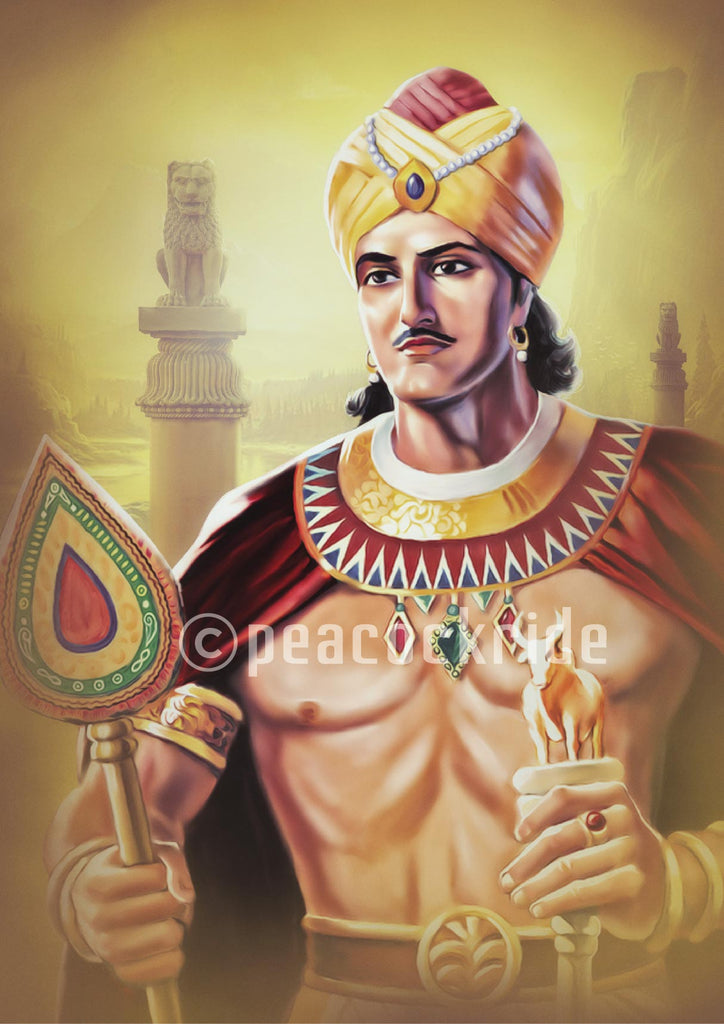
The pivotal moment in Ashoka’s life came in 262 BCE during the Kalinga War, where his forces triumphed but at a great cost. Witnessing the immense suffering and loss of life, Ashoka experienced a profound change of heart. Consumed by remorse and the futility of war, he renounced violence and embraced the principles of Buddhism. This turning point led to Ashoka’s conversion into a compassionate and enlightened ruler.
As an enlightened monarch, Ashoka enacted policies that promoted welfare, justice, and religious tolerance. He established a comprehensive administrative system, implementing reforms for the betterment of his subjects. Ashoka invested in infrastructure projects, constructing roads, hospitals, and rest houses, thus improving trade and connectivity within his vast empire.
Ashoka’s commitment to Buddhism is evident in his rock and pillar edicts, which were inscribed throughout his kingdom. These edicts outlined principles such as respect for all religions, moral conduct, and social welfare. Ashoka actively propagated Buddhism, sending missionaries to spread its teachings far and wide. His efforts resulted in the expansion of Buddhism beyond the Indian subcontinent, reaching as far as Sri Lanka, Southeast Asia, and Central Asia.
Emperor Ashoka’s legacy continues to resonate throughout history. His commitment to non-violence, compassion, and moral governance serves as an inspiration to leaders worldwide. Ashoka’s impact on Buddhism is immeasurable, as he played a pivotal role in its spread and establishment as a major global religion.
Furthermore, Ashoka’s administrative and welfare reforms laid the foundation for good governance, emphasizing the welfare of his subjects. His policies aimed to address social inequalities and promote religious tolerance, fostering harmony and unity within his diverse empire.
Emperor Ashoka’s reign represents a remarkable transformation from a ruthless conqueror to an enlightened ruler. His conversion to Buddhism and subsequent policies of justice, compassion, and welfare left an indelible mark on ancient India. Ashoka’s commitment to non-violence and religious tolerance, as well as his contributions to Buddhism, continue to inspire generations even today. His reign stands as a testament to the enduring power of compassion and enlightened governance, making Ashoka one of the most influential figures in ancient Indian history



















Add Comment